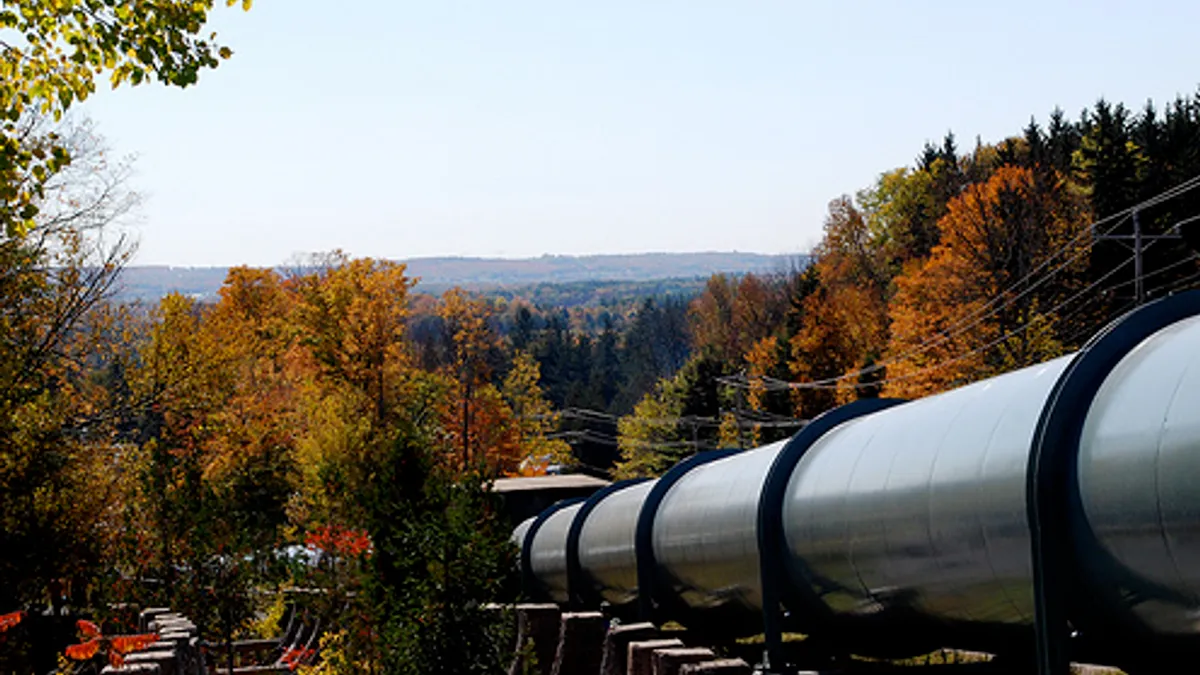Dive Brief:
- Enbridge this week informed the Federal Energy Regulatory Commission that it will halt development of a pipeline proposal which aimed to move more natural gas into the Northeast, citing an inability to pay for the $3.2 billion project.
- The project, an expansion of the existing Algonquin Gas Transmission system, could have increased gas capacity in the region by up to 925,000 dekatherms per day.
- MassLive.com reports project developers cited a patchwork of energy policies in the region which made funding difficult.
Dive Insight:
Whether or not the Northeast needs more gas remains up for debate. But if the region does need more fossil fuels, it will also need to find a way to pay for pipeline development.
Last year in August, the Massachusetts Supreme Court ruled electric utilities could not charge customers to develop the line. That led project backers like Eversource Energy and National Grid to drop their support.
At peak delivery, the project was expected to provide enough gas for 5,000 MW of generation. Following the court's decision last year, Massachusetts Attorney General Maura Healey called it a win for consumers, saying it means pipeline developers "will need to find a source of financing other than electric ratepayers’ wallets.”
Brian McKerlie, a vice president at Enbridge, told the Boston Globe that the company still wants to develop Northeast Access but first needs to lay the groundwork. “Once we work through the legislative [support], we’ll be able to reengage the FERC filing process and be back on track,” he told the newspaper.
It is the second large pipeline to face financing issues in the region. Last year, Kinder Morgan scrapped plans for its Northeast Energy Direct pipeline, a $5 billion project designed to move Marcellus Shale gas into the northeast. Company officials cited "insufficient contractual commitments" from customers in the New England market.















